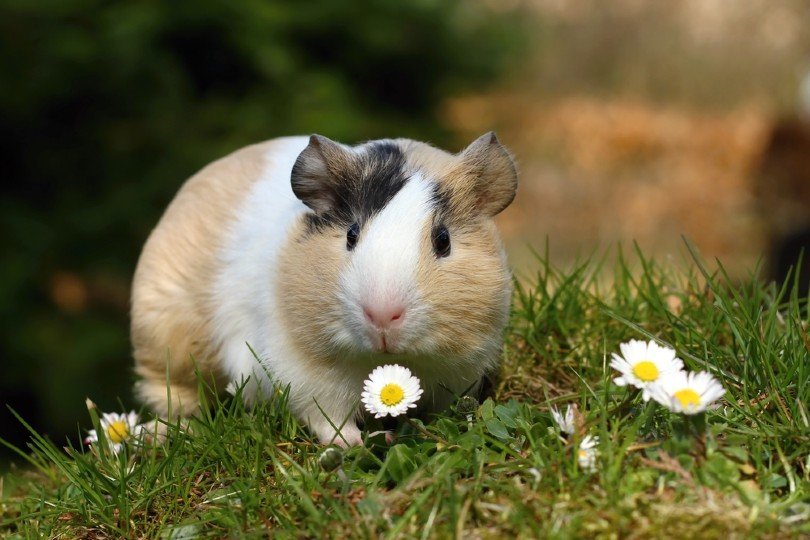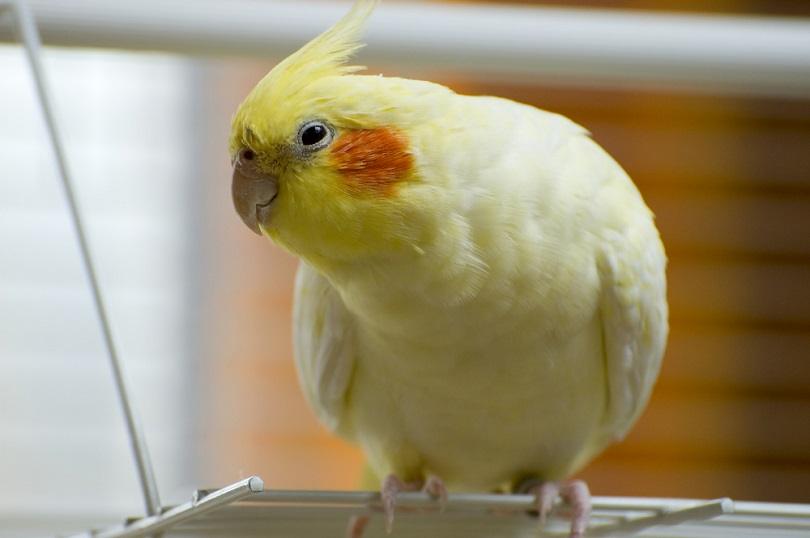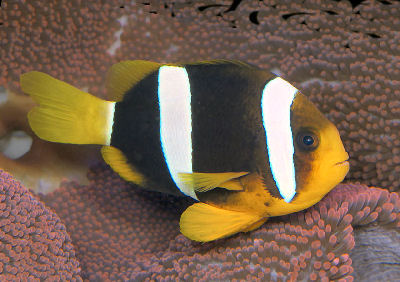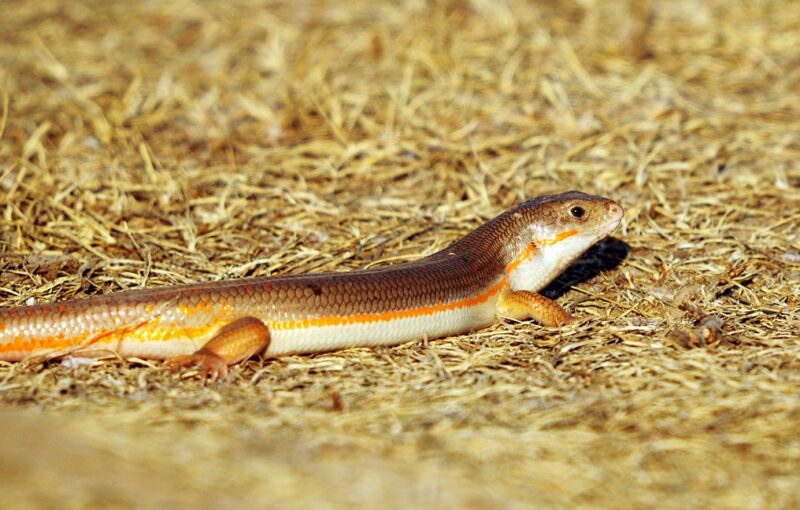Click to Skip Ahead
Guinea pigs are small but can make excellent pets. While they might be considered a single species, there are many different breeds. The guinea pig is also a prey animal, and they naturally resist being picked up and handled, but there are many exceptions to this rule. For example, the skinny pig is quite social and considered good for those with allergies because of their lack of hair.
Abyssinians are popular guinea pigs because they are popular for showing and make friendly pets. While we consider these to be the friendliest cavies, several other breeds are worth considering because they tolerate being handled and are easy to care for. Read on to learn more about the Abyssinian and other friendly guinea pig breeds.

The Abyssinian
The Abyssinian is one of the friendliest breeds of guinea pig. They have medium-length fur and can have any combination of colors in the eight to 10 rosettes, or swirls, on their coat. This breed is not only friendly and open to handling, but they can also be energetic and will play simple games with children, making them a great choice for a family pet.
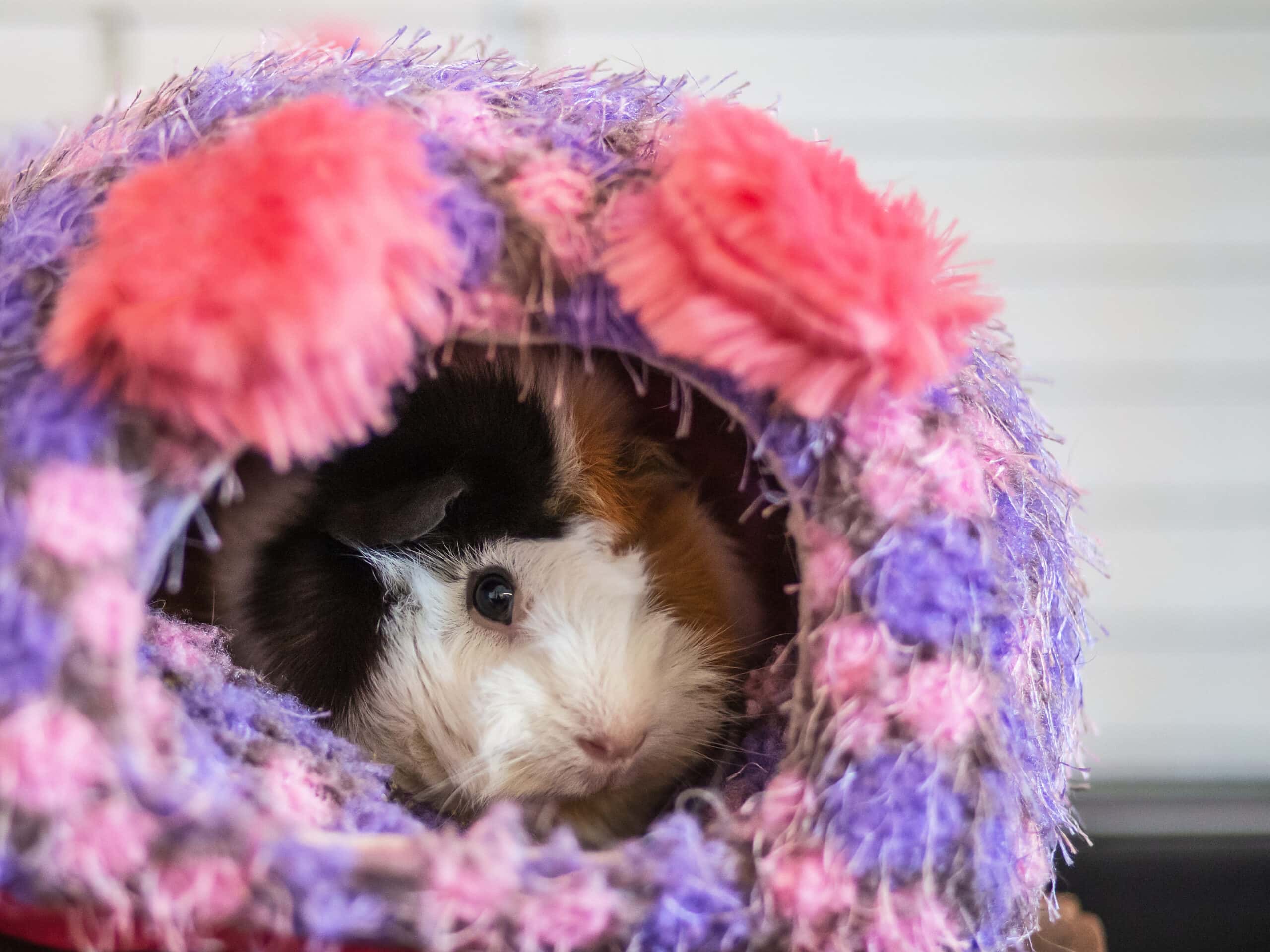

Top 3 Other Popular Guinea Pig Breeds
Other popular and friendly breeds include the following.
1. American Guinea Pig
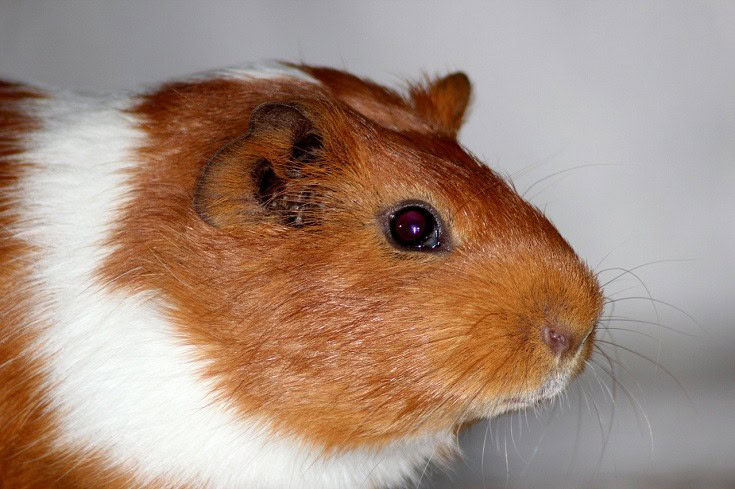
The American guinea pig is widely available, often found in pet stores. They’re easygoing and generally quite a friendly little animal. They are easy to care for, too, and are considered suitable for owners of all ages and experience levels. Although this is considered a small guinea pig breed, the American makes up for that by being relatively easy to train and socialize.
2. Teddy Guinea Pig
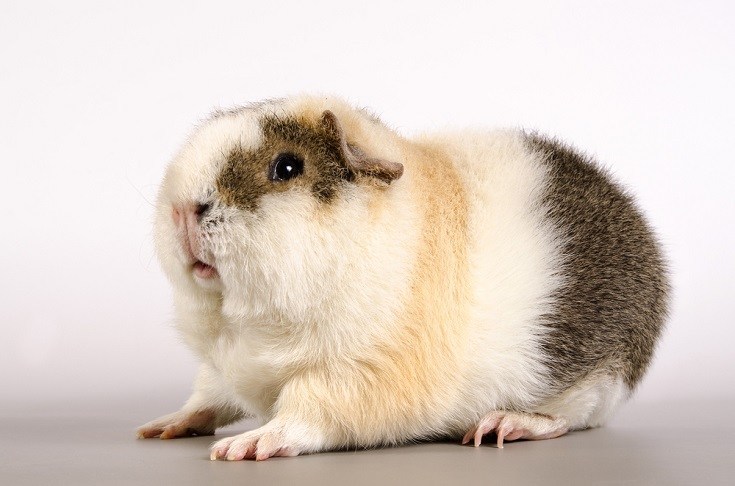
The teddy guinea pig has a wiry coat, and their appearance and cuddly nature are what led to them being given their name. This breed is popular and can be found in most pet stores. The Teddy may genuinely enjoy being handled, rather than simply tolerating being picked up.
3. Peruvian Guinea Pig
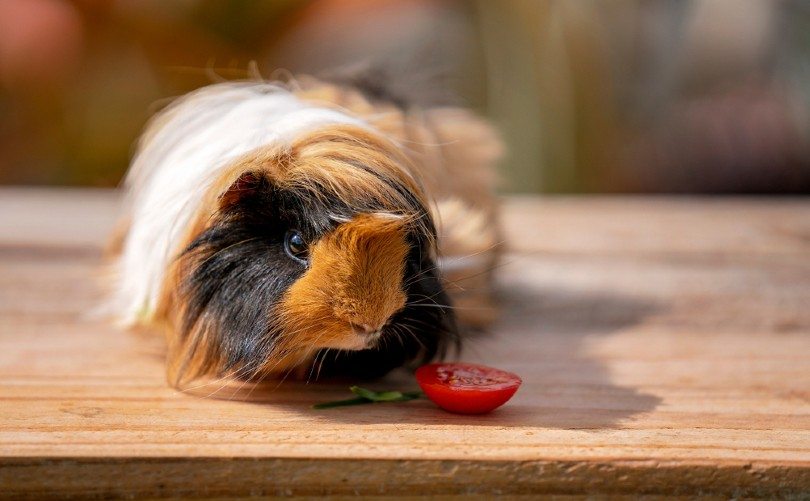
The Peruvian is a unique-looking cavy due to their long, smooth hair. This friendly little rodent is curious and can be convinced to sit with their owner. Peruvians usually enjoy being handled, but they are not the easiest to care for. Their long coat needs regular grooming and attention; otherwise, it can become matted and uncomfortable.

About Guinea Pigs
Guinea pigs—also called cavies because of their scientific name, Cavia porcellus—are small animals but are considered big by most rodent standards. They are among the largest of the small pet class. They are popular pets because they are as easy to keep as hamsters, but since they are bigger, they are considered safer and easier to handle.
Their bigger size also means that they will live for around 6 years. Furthermore, while they do have the ability to get away from danger and peril, they are not as difficult to catch as rabbits or hamsters.
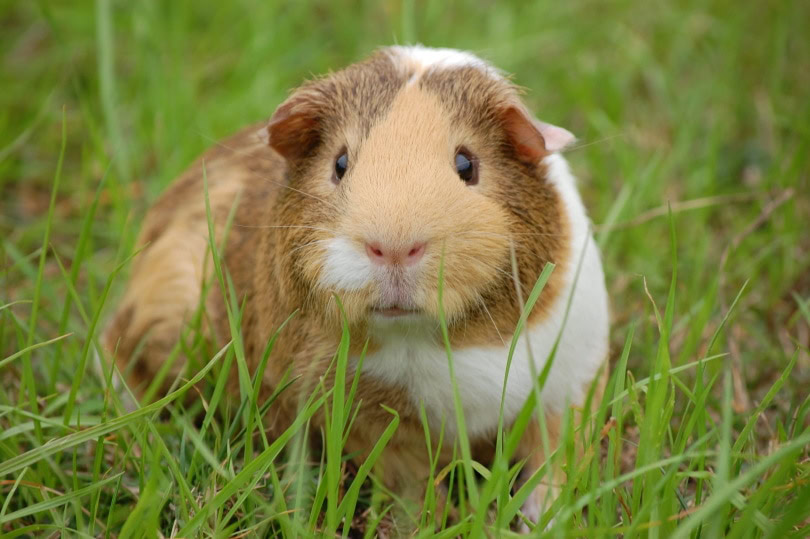
Caring for Your Guinea Pig
If you intend to keep guinea pigs, you will need to meet certain standards of care to ensure that your pet leads a healthy and happy life. Not only does this help ensure that your cavy lives longer, but a happy and satisfied guinea pig is also more likely to enjoy being picked up and handled.
Ensure that you provide a cage that is at least 7.5 square feet, but ideally, it should be larger than this for a single guinea pig. For two, you should provide a minimum of 10.5 square feet. Extra space means extra room for your rodent to run around, and it allows for extra tunnels and toys too. The cage should be horizontal because cavies do not really climb.
Provide a substrate, such as sawdust, along with a bed, bedding, and hiding spots where your guinea pigs can go to get privacy. Tunnels, logs, chew toys, and tubes make great additions because they encourage physical activity and provide mental stimulation.
As sociable animals, guinea pigs benefit from being kept in pairs or groups. As long as the cage is big enough, you can keep two male pigs together or two females, but it is vital to ensure that you offer plenty of space. Remember that while these animals are sociable, they do not necessarily enjoy having to share items and toys.
- Read Also: How to Take Care of a Guinea Pig
How Do You Pick a Friendly Guinea Pig?
Besides ensuring that they look healthy, try to pick a sociable guinea pig that already gets along with people and other cavies. It is possible to rehabilitate an unfriendly or even an aggressive guinea pig, but it is much easier to start with one that already shows friendly attributes. They should be bright and alert and may initially show some caution when approached, but your potential pet should not be overly concerned when you put your hand in the cage, and they certainly shouldn’t try to bite you.
- See Also: Do Guinea Pigs Make Good Pets?
Is It Better to Have a Male or Female Guinea Pig?
Male guinea pigs, called boars, are usually a little larger than females, or sows. While it is possible to keep two males together, if you want a group of more than this, you should consider females because they will get along better together. They are usually more timid than their male counterparts, though, and that extra bravado means the male is more likely to come to you and be susceptible to handling. More important than sex is the amount of time you spend with your cavy and their temperament.
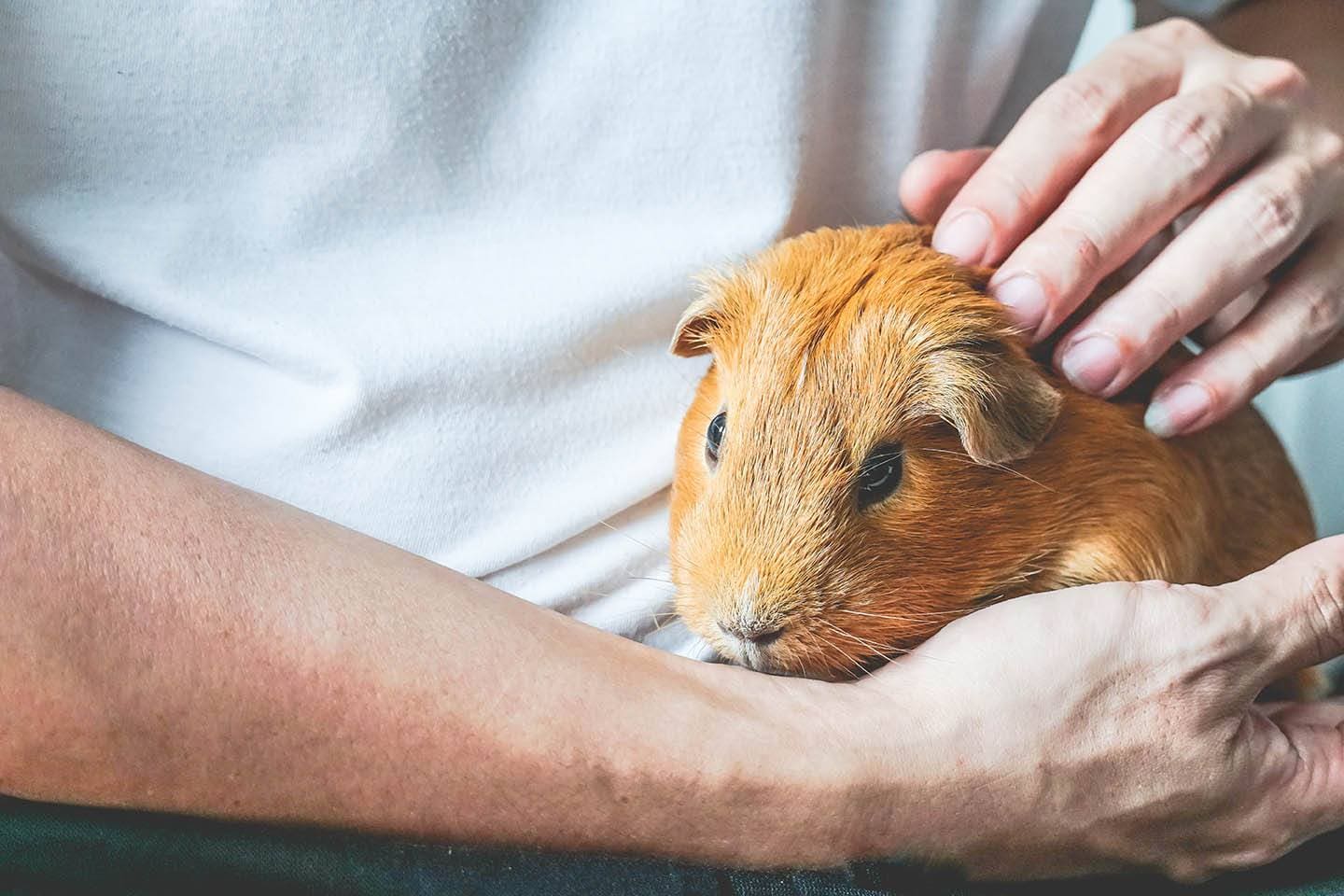
Why Won’t My Guinea Pig Let Me Pet Them?
There are several potential reasons that your guinea pig won’t let you pet them. If you have only just got them, they need time to settle into their new surroundings and to get used to their home and you. If they’re adopted, the previous owner may not have handled them often. In that case, it will take time to show that you can be trusted and build a bond with them.

Tips for Guinea Pig Handling
To help ensure that you have a friendly pet that likes to be handled, try the following tips:
- These are sociable animals by nature, and most relish time and handling with their owners. Exceptions can arise, though, when one does not have a positive experience of being handled. In all cases, you should start slowly, but you should be especially patient if a newly adopted guinea pig has not had human contact or worse, has been hurt by humans in the past.
- Give your new pet time to settle in. They will be surrounded by new sounds, sights, and smells, so give them a few days to settle in before you start trying to pick them up and handle them.
- During these first few days, they will start to get used to your scent. Speak to them through the cage so they can also get used to the sound of your voice.
- Hold them securely but not too tightly. Slide your hand under their belly and lift. Rather than gripping too tight, let the guinea pig hang from your hands, or clutch them into your chest with one hand and pet them with your other hand.
- Remove the potential for harm. Even if you have years of experience holding guinea pigs, they still have the potential to surprise you and make a bid for freedom. Ensure that you hold yours close to ground level or above a soft and safe surface that is not too far away. If they do jump or you drop them, a short fall onto a cushion will not harm them and should not put them off being handled in the future.

Final Thoughts
Guinea pigs are popular pets. They are small enough to keep in most apartments and homes but big enough that they are not too fragile. They require minimal care, though a breed like the Peruvian does require a lot of grooming to ensure that their coat remains healthy and comfortable. With a life expectancy of approximately 6 years, they live longer than smaller animals like hamsters and even rats. Cavies are also sociable, and they not only enjoy living with other companion guinea pigs but also usually like being picked and handled by their humans.
Related reads:
Featured Image Credit: Miroslav Hlavko, Shutterstock
